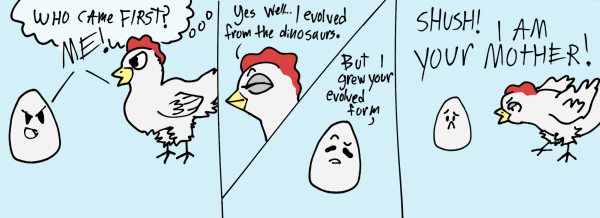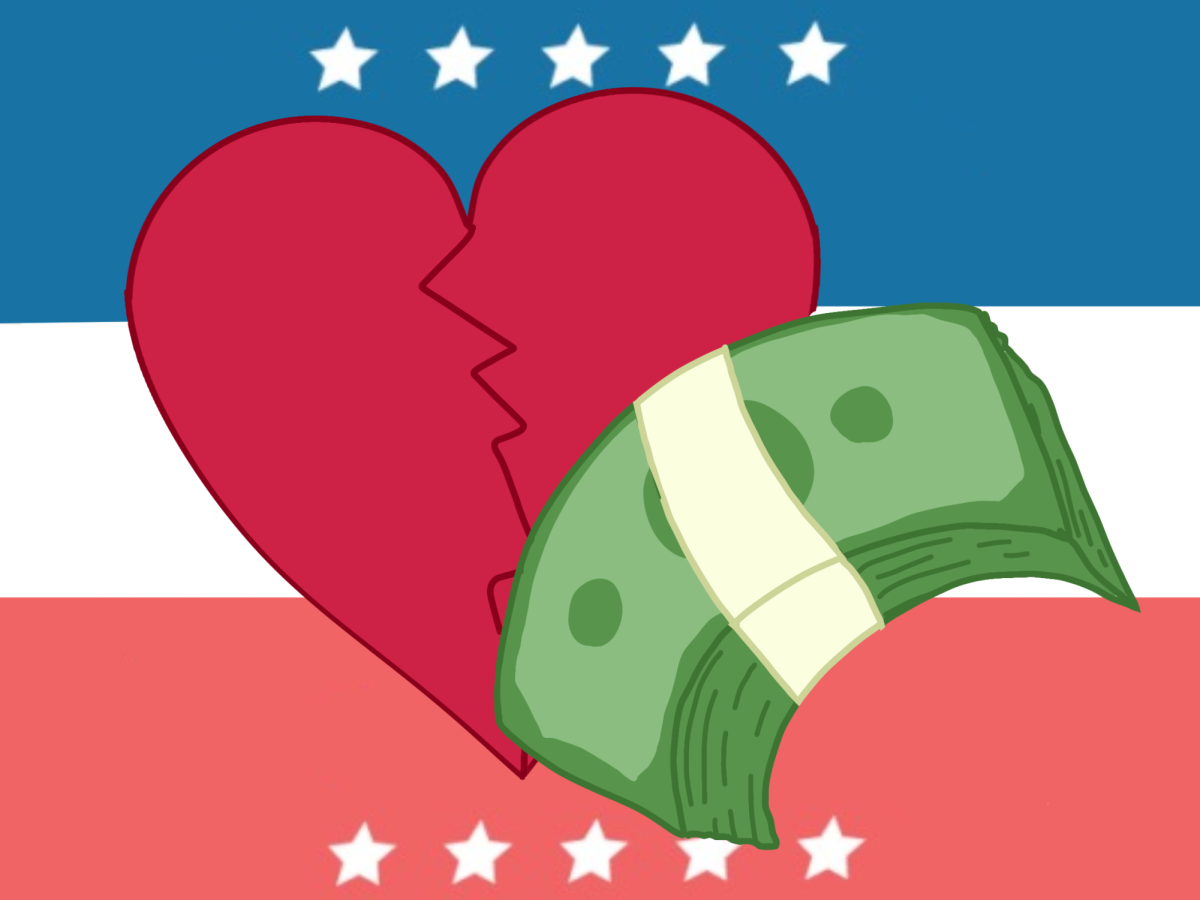Older than sliced bread and as controversial as the Kardashians, the notorious chicken vs. the egg debate remains unsettled. With opinions based on evolutionary and biological sciences, religion and pure whim, the egg ultimately holds no candle to the originality of the chicken.
In a poll of 50 NC student voters, 62% of respondents voted for the chicken existing first, leaving the egg behind with only 36% of votes. Additionally, one independent responder claimed neither came first, just as circles contain no end or beginning. This highlights a preference towards believing the chicken preceded the egg in the endless sequence. Popular vote alone, however, proves nothing.
“So I am religious. I do believe in the fact that God created [all] animals and gave them purpose. [T]he chicken [was] created first, and then given the ability to create life and produce from itself. I believe God wanted to share His gift with His creations and continue on the impact of [life],” junior Ryan Mason said.
Through a spiritual lens, animals first existed and then received the abilities they required to thrive. An animal first needs to exist before it can gain the ability to reproduce. In order to reproduce from itself, an egg must first originate from a creature with the ability to spawn. The concept of an egg producing itself without an ancestor seems implausible. Just as Antoine Lavoisier claims in “Law of Conservation of Mass”, matter cannot become created or destroyed. An egg needs to originate from a form able to pass down the genes of a chicken.
Despite the usual tensions between science and religion, they seem to agree on one fundamental component of life: survival. Both arguments acknowledge that living organisms enter the world with a will to simply live, leading to reproduction. Religious lenses believe a divine creator designed living things purposefully, hinting that perhaps continuing life and repopulating belong to an unseen plan. Conversely, science focuses on life evolving and continuing via natural selection, ensuring the line of a species continues. All debaters agree, regardless of personal beliefs, that creatures enter the world with the base instinct to simply survive. Thus in a beautiful, albeit unexpected, harmony, the gap between fact and spirit seems to agree.
Science itself, however, seems to host inner tensions. Critics use a secondary scientific argument, believing that the evolutionary theory supports the fact that the egg precedes the chickens’ existence. Over eons, animal ancestors evolved and merged to become nearly what exists today. The almost chicken then laid the egg, where the final form grew and hatched as what the world commonly sees today.
“The chicken can’t be here without the egg. Whatever species the chicken evolved from laid an egg that mutated and became the chicken that we all know today. Basically, the evolution happened [inside] the egg first and then the chicken was created,” magnet junior Grace Amah said.

This argument stands strongly, however, it holds no candle to the same evolutionary theory but is applied differently to defend the chicken. For a legitimate chicken to be born, a fully-fledged chicken must first exist. Evolution caused the chicken species to appear as it’s commonly known now, a chicken cannot hatch until a chicken lays the egg. The concept of an egg producing itself without an ancestor remains an implausible idea.
“I think the chicken came first [evolving] from other animals. Then over time, the animal kept evolving and slowly turned into the chicken. Then it started laying eggs, making more chickens,” magnet sophomore Thalia Johnson said.
While the infamous debate will undoubtedly continue, evidence steers curious debaters only in one correct direction: the feathery friend that society all knows and loves today graced the earth with its presence first. Eggs would not exist without the chickens’ blessing today, and for that, society can only thank the beloved animal for the establishment of Kentucky Fried Chicken.











